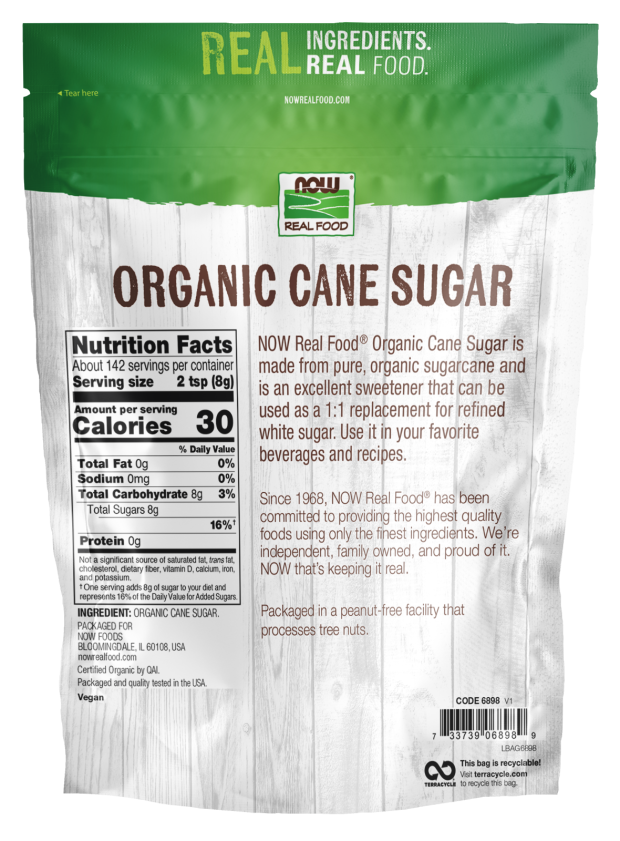Cane Sugar Processing: From Field to Table-- A Step-by-Step Guide
Cane Sugar Processing: From Field to Table-- A Step-by-Step Guide
Blog Article
A Thorough Review of the Health and Economic Ramifications of Walking Stick Sugar Processing on Regional Neighborhoods
Walking cane sugar handling plays an essential role in forming the financial landscape of local communities, offering employment opportunities and promoting supplementary industries. The wellness implications linked with high sugar intake can not be ignored, as they contribute to rising rates of weight problems and diabetes mellitus.
Economic Benefits of Walking Cane Sugar Handling
Walking stick sugar processing uses substantial economic advantages that expand beyond the prompt agricultural sector. The farming and processing of sugarcane develop countless work chances, from farming to production and circulation. This work generation not just supports regional economies however additionally fosters neighborhood development by providing stable earnings sources for households.
Furthermore, the sugar market stimulates supplementary companies, including transportation, tools supply, and packaging solutions (Cane Sugar Processing). As these markets expand, they contribute to a much more robust economic framework, enhancing general neighborhood durability. The export potential of refined walking cane sugar even more enhances financial benefits, positioning areas as affordable players in worldwide markets
Financial investment in modern handling centers can bring about boosted efficiency and effectiveness, therefore minimizing waste and optimizing resource use. This change not just benefits the local economic climate yet additionally supports sustainability initiatives by minimizing ecological effects.
In addition, the profits produced from walking stick sugar handling can be reinvested in local infrastructure, education, and medical care, advertising holistic community development. On the whole, the economic benefits of walking cane sugar processing are multifaceted, offering a foundation for enduring prosperity in farming areas.
Health And Wellness Threats Associated With Sugar Intake
Too much sugar intake positions significant wellness threats that call for serious attention. High intake of added sugars, especially from refined drinks and foods, has been connected to countless wellness problems. One of one of the most important problems is excessive weight, as sugary diet regimens add to a boosted caloric consumption without giving crucial nutrients. This unwanted can bring about metabolic disorders, consisting of type 2 diabetic issues, which has come to be progressively common in both adults and youngsters - Cane Sugar Processing.
In addition, high sugar intake is connected with heart disease. Raised blood sugar level degrees can cause insulin resistance, a precursor to numerous heart-related issues. In addition, sugar can have detrimental impacts on dental wellness, leading to tooth cavities and gum tissue condition, as microorganisms in the mouth prosper on sugar, generating acids that deteriorate tooth enamel.
Additionally, arising study recommends a possible link in between high sugar consumption and mental wellness disorders, such as clinical depression and anxiety. As areas grapple with these health and wellness threats, it ends up being important to promote understanding and encourage much healthier dietary options. Attending to sugar intake is important not only for private wellness but likewise for the general wellness of regional communities, emphasizing the need for thorough public health and wellness approaches.
Ecological Impacts of Sugar Manufacturing
Frequently forgotten in discussions regarding sugar's ramifications is the significant ecological impact of sugar manufacturing. The farming of sugarcane typically demands comprehensive land use, bring about logging, loss of biodiversity, and interruption of neighborhood communities. The conversion of forests and marshes into sugar vineyards can lead to environment devastation, threatening countless types and altering ecological equilibrium.
Furthermore, sugar manufacturing is resource-intensive, consuming substantial amounts of water for watering. This can bring about exhaustion of regional water resources, adversely influencing both agricultural methods and community accessibility to clean water. In addition, the use of chemical plant foods and chemicals in sugarcane farming can add to dirt destruction and water air pollution, as drainage from these chemicals gets in close-by rivers and lakes, impacting aquatic life and human health.
The more ecological footprint includes the handling phase, where energy usage and waste generation additional aggravate environmental issues. Air contamination from melting sugarcane areas, along with greenhouse gas exhausts, add to i was reading this climate adjustment. Therefore, the ecological ramifications of sugar manufacturing warrant serious factor to consider, urging stakeholders to adopt more sustainable techniques to alleviate these negative effects on regional ecosystems and areas.
Task Production and Area Advancement
The ecological challenges presented by sugar production are often counterbalanced by its capacity for financial advantages, especially in job creation and community growth. The cane sugar sector acts as a significant source of employment in many rural locations, providing jobs throughout different ability degrees, from farming labor to handling and distribution roles. This employment not just sustains specific family members yet also adds to the general financial vitality of local neighborhoods.
Moreover, the facility of sugar handling centers stimulates secondary organizations, such as transportation solutions, equipment supply, and maintenance service providers. As these organizations thrive, they create additional tasks and reinforce local economic climates. The earnings produced from the sugar market additionally leads to enhanced tax revenues, which can be reinvested right into neighborhood solutions such as framework, education and learning, and medical care growth.
Additionally, the sugar market commonly participates in community advancement campaigns, such as supporting neighborhood schools and health and wellness programs, thereby enhancing the lifestyle for locals. By fostering solid community ties and advertising financial growth, the cane sugar processing industry plays a crucial role in uplifting local populations, making it an important part of lasting growth approaches in sugar-producing areas.
Harmonizing Health and Economic Development
In browsing the intricacies of walking cane sugar processing, a crucial challenge lies in stabilizing health factors to consider with economic development. The sugar industry significantly contributes to regional economic climates by creating jobs, boosting relevant fields, and increasing tax revenues. However, the wellness ramifications related to excessive sugar consumption can lead to chronic diseases such as excessive weight, diabetes, and cardio issues, which can problem public wellness systems and diminish workforce efficiency.

Moreover, governing structures can play a critical role in directing industry techniques in the direction of even more health-conscious and sustainable strategies. By fostering collaboration in between federal government bodies, health and wellness companies, and the sugar sector, neighborhoods can navigate the dichotomy of health and financial growth, making certain that the advantages of walking stick sugar processing are equitably shared while prioritizing public health and wellness.
Verdict
Finally, the processing of cane sugar provides both substantial financial benefits and remarkable wellness dangers for neighborhood areas. While it promotes job development and promotes regional development, the associated wellness problems, especially pertaining to weight problems and diabetic issues, require a mindful harmonizing act. By advertising liable consumption and investing in community education and lasting practices, it is possible to maximize economic advantages while lessening negative health and wellness impacts, thereby making sure a much healthier future for local populations.
Additionally, sugar can have harmful results on dental health, resulting in dental caries and gum tissue condition, as germs in the mouth flourish on sugar, creating acids that erode tooth enamel.
Dealing with sugar usage is critical not only for individual health and wellness yet also for the general health of regional neighborhoods, stressing the demand for thorough public health approaches.
Often forgotten in discussions regarding sugar's effects is the substantial ecological impact of sugar production. The health effects linked with too much sugar usage can lead to persistent diseases such as obesity, diabetic issues, and cardio problems, which can problem public health and wellness systems and lessen workforce productivity.

Report this page